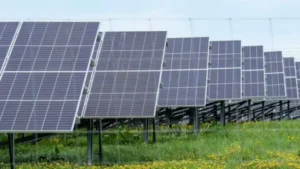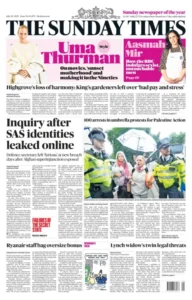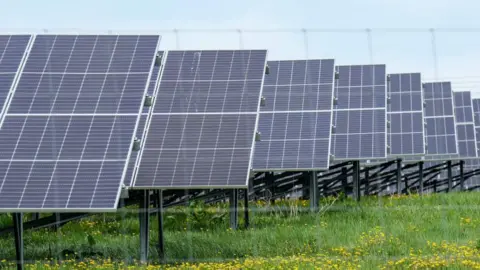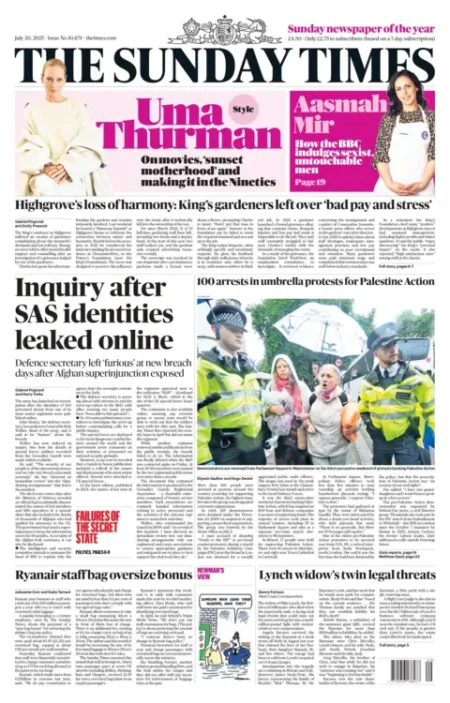**The Great British Energy Initiative: A Controversial Choice of Solar Panels**
The recent development surrounding the UK’s “Great British Energy solar panels” sparked considerable discourse, particularly due to the revelation that these panels were predominantly manufactured in China. This news comes as the first schools in England participating in the GB Energy initiative installed solar panels sourced from two Chinese companies, Aiko and Longi. Initially heralded as a flagship project aimed at promoting renewable energy, concerns have arisen regarding the ethical implications of sourcing materials from a nation entwined with allegations of human rights violations, particularly in its Xinjiang region.
**Background of the Development**
The GB Energy initiative was framed as a significant step by the British government in advancing its renewable energy credentials. Prime Minister and Labour MP Sarah Champion expressed excitement over the initiative, emphasizing its foundational principle aimed at benefitting the British populace. However, she also articulated a critical standpoint—that taxpayer money should not inadvertently support industries associated with slave labor. Champion’s sentiment echoes broader societal concerns regarding the complexities of global supply chains, especially as it pertains to solar energy production.
According to Champion, while the initiative is commendable in principle, there exist significant challenges in aligning ethics with economic feasibility. The MP urged that future investments should favor UK-made solar panels despite potential higher costs, underscoring the importance of responsible procurement. Businesses in the solar energy sector, including companies from Taiwan, Canada, and within the UK, could serve as viable alternatives, thus supporting local economies and better labor practices.
**Ethical Concerns Over Sourcing**
Longi and Aiko, the manufacturers at the center of this controversy, have publicly asserted their stance against forced labor within their supply chains. However, China’s standing as a leading global producer of solar panels, coupled with its economic dominance—reportedly over 80% of solar panel manufacturing stages—is disconcerting. Allegations regarding forced labor in Xinjiang, linked to Uyghur Muslims, complicate matters further. The UK government, bolstered by public sentiment, modified laws to curtail investments in solar production implicated in modern slavery. This progressive step indicates a heightened awareness and responsiveness to global human rights issues.
Mark Candlish, director of GB-Sol, Britain’s sole conventional solar panel manufacturer, voiced apprehensions about the pervasive issues within the industry. Emphasizing that polysilicon, a fundamental component of solar panels, is significantly sourced from Xinjiang, he remarked on the considerable ethical quandaries facing those in the renewable energy sector. He acknowledged the widespread reliance on cheaper Chinese solar panels, which oftentimes come at the expense of ethical labor practices.
**Legislative Actions and Industry Reactions**
The response from GB Energy indicated broad compliance with UK modern slavery regulations, stating its commitment to ethical supply chains. They had allocated approximately £200 million for solar projects in schools and hospitals, yet the first batch of panels had been sourced from Chinese manufacturers. This dichotomy between initiative and practice has drawn criticism, highlighting the complexities of ensuring ethical supply while pursuing ecological objectives.
Furthermore, recent trends denote a troubling escalation in the UK’s importation of Chinese solar panels; figures suggested two-thirds of solar panels imported in 2024 originated from China, an increase from 61% the previous year. Reports from independent studies indicated a lack of transparency in solar supply chains, further exacerbated by underreported allegations concerning forced labor, thus underscoring the urgent need for systemic reforms.
**Forwarding a Just Solar Transition**
In light of these developments, the government, industry leaders, and advocacy groups must work collaboratively to ensure sourcing practices align with ethical standards and human rights protection. Great British Energy stands at a pivotal juncture, poised to set an example for future renewable endeavors. It represents both a commitment to innovative energy solutions and the pressing need to uphold ethical production methodologies.
With ongoing scrutiny surrounding human rights abuses linked to the solar panel supply chain, stakeholders must proactively exclude known violators from public contracts, fostering a more transparent and humane approach to renewable energy production. The future of the GB Energy initiative may depend on its ability to navigate these complexities effectively and responsibly conduct its operations in the renewable energy sector. As it stands, the integrity of the initiative may well hinge on more than just energy efficiency—bringing ethics to the forefront of energy procurement is essential in moving forward.











